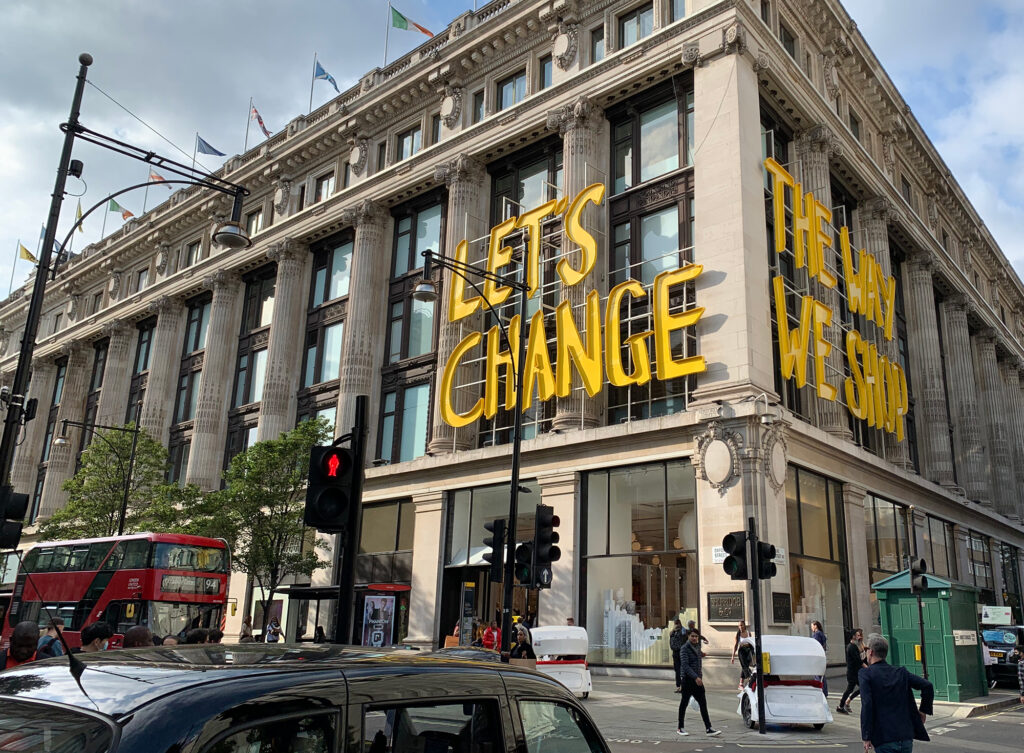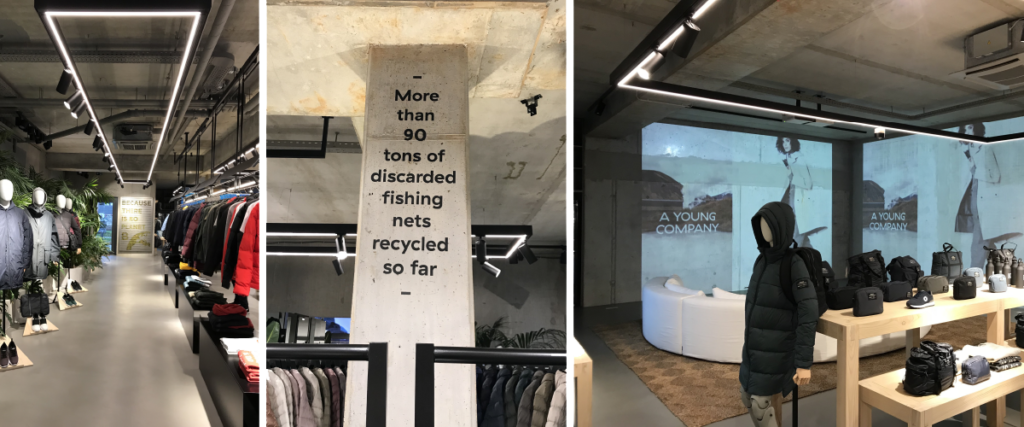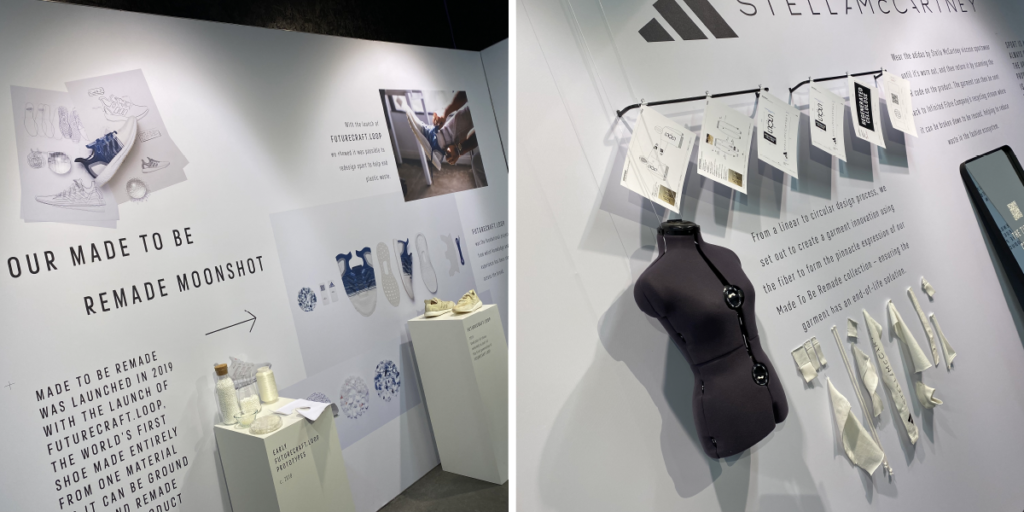trends, sustainability, design, insights
How is demand for sustainable solutions affecting retail experiences?

There is no doubt that consumer behaviour has had a shift in the last 5 years. This shift has seen consumers making informed choices about products based on green credentials and dropping brands that aren’t legitimate in this space, whilst embracing and explicitly promoting those that are.
Perhaps spurred on by the obvious changing patterns to our weather, or the swaths of plastic floating in the pacific, or pollution crisis after pollution crisis, whatever it may be – 70% of individuals across 30 countries believe they will be failing future generations if they don’t look to fight climate change through better product choices and recycling [1]. That said, they don’t believe the onus is on them alone – 51% of people think the primary responsibility for more ethical and sustainable consumerism lies with businesses [2].
Sustainability measures consumers expect from retailers include: Recycling, used & refurbished clothing sections, alternative packaging, refill options, the elimination of single use plastics, the ability to hire, or food waste solutions, to name but a few.

This ‘green awakening’ is set to continue, and since it can be so ultimately beneficial for all involved to be more sustainable, then brands and organisations of all kinds should get onboard and push the agenda.
Below are just a few of the key questions we asked Lynda our Strategic Development Director and Dudley our Creative Director in a recent interview about Displayplans’ Global Sustainability drive:
How much demand are Displayplan getting from clients for sustainable solutions?
Lynda: Global brand clients are asking to understand the carbon footprint and environmental impact of displays. Additionally, they want to understand the total impact of their operations, therefore they’re asking us to account for the carbon footprint of our operations as well.
For many of our UK retailer clients, sustainability conversations about equipment and retail fit out solutions does not get as much attention as their priority, the products themselves. Though there is a lot of curiosity and open mindedness, and each month we are having more and more sustainability conversations. Which is encouraging, it’s what we want.
Dudley: The competitive edge that can be achieved making sustainability an overt focus can’t be ignored, what’s great is that much of what we deliver is sustainable. There is still a real balance to be found between desire and costs; while clients come to us with a desire to be more sustainable, they also have procurement departments looking to reduce costs which we cater to through value engineering. We work to continually improve and refine and support our clients.
How do Displayplan cater to that demand?
Lynda: Our concept and tech design teams always keep a few core principles in mind:
- Use recyclable materials only, for example – no PVC
- Design for disassembly, no bonded materials, everything must come apart at the end of life to go into separate recycling streams.
- Always utilise 100% recyclable packaging
We have a great process for tackling sustainability-specific requests related to measuring the carbon footprint of existing equipment, and then as Dudley mentioned, we value-engineer alternative approaches to then reduce the carbon footprint.
Dudley: The crucial starting point is asking the right questions up front to make sure we understand the client’s needs. It’s then our job to educate on practical applications and continue to propose impactful and exciting retail experiences that meet the above criteria Lynda listed. As well as push the agenda to be as sustainable as possible using Circular Economy principles.
Being part of the wider conversation is crucial too: We’re part of the POPAI Sustainability Council, which leads sustainable approaches and tackles industry issues. We actively get involved in debates and look for ways to solve and educate all stakeholders. Constantly learning and keeping our finger on the pulse of what’s happening in the industry means we can ultimately be more helpful to clients too.
Specific to sustainability, what services do Displayplan offer?
Dudley: It’s our aim to be the best partner in our industry for sustainability efforts. We’ve had our Measure, Reduce, Offset approach in place for the last three years.
We look to align to clients’ specific strategic objectives and support with specific tools to foster progress. Tools such as sustainability workshops, using LIST analysis to establish carbon footprint, Value Engineering, and we use Gold Standard for offsetting.
Is there a client that is forging ahead with a sustainable retail offering?
Lynda: I would say Nike and Adidas are on point to meet consumer demands. Both have exciting footwear and apparel options made from recycled shoes and/or ocean plastics. Often these are then supported with in-store merchandising and fixtures made from the same materials.
From an FMCG perspective Mars is firmly focussed on sustainability, their product ingredient supply chain takes priority, but they are working to streamline displays, make them lighter, smaller to ship and easier to refurbish or recycle. This may not be obvious to the consumer yet, but lots is happening behind the scenes.
Dudley: M&S have been at the front of sustainable approaches to retail fixtures and stores. We wrote the Sustainable Designers Guide in collaboration with them. This is used to set an expectation and is shared with every design agency, supplier and company they work with for store design. It sets the standard for sustainable design. We wrote the rules that we all work to.

Is there one lasting thought you’d like to leave with people reading this?
Dudley: We are extremely passionate about this topic, to us it isn’t just a business solution to provide a competitive edge: We aim to be sustainable and carbon neutral as an organisation, because we care, and we believe that collectively we have a moral obligation.
Lynda: What is needed is constructive open-mindedness, along with realistic expectations about what larger organisations will accept for an end result, cost, and overall value. In the future, the kit we provide will directly cater to shopper needs. From the endcaps that will dispense bulk products into re-usable containers, to modular display systems that are refurbished and re-used in stores for multiple cycles. Now is the time for us to re-write old rules in the retail business, making sure we are transparent, to make long term effective change.
The team have plenty more to say about sustainability. To hear about what brands Displayplan find inspiring, or for more snippets of this interview, keep your eyes peeled on future newsletters and our social media pages.
Thanks for reading.
[2] IPSOS MORI Feb 2022
